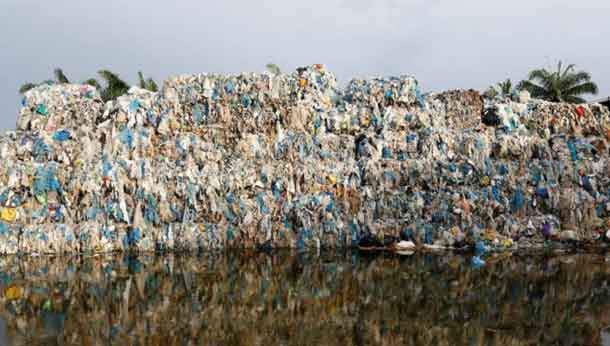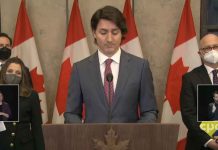
OTTAWA – “Canadians know first-hand the impacts of plastic pollution, and are tired of seeing their beaches, parks, streets, and shorelines littered with plastic waste. We have a responsibility to work with our partners to reduce plastic pollution, protect the environment, and create jobs and grow our economy. We owe it to our kids to keep the environment clean and safe for generations to come,” says Prime Minister Justin Trudeau.
Plastic pollution is a global challenge that requires immediate action. Plastic waste ends up in our landfills and incinerators, litters our parks and beaches, and pollutes our rivers, lakes, and oceans, entangling and killing turtles, fish, and marine mammals.

Patty Hajdu, Member of Parliament for Thunder Bay-Superior North says, “Just last week I received letters from students of all ages from across our region who are concerned about our planet, our lakes and our pollution problem. I am happy to show these young leaders that our government is taking these issues seriously. Plastic pollution is a global challenge that requires immediate action. The Great Lakes alone, including our beautiful Lake Superior, are polluted by more than 22 million pounds of plastic every year. While the Conservatives still have no plan to fight protect our environment, we are taking action by banning harmful single-use plastics and making sure companies take full responsibility for collecting and recycling their plastic waste. Reducing this waste and supporting new technologies will create economic growth that benefits everyone and will leave a healthier planet for our children and grandchildren.”
“Less than 10 percent of plastic used in Canada gets recycled. Without a change in course, Canadians will throw away an estimated $11 billion worth of plastic materials each year by 2030. We’ve reached a defining moment, and this is a problem we simply can’t afford to ignore,” states the Prime Minister in a news release.

Thunder Bay-Superior North Conservative candidate Frank Pullia states, “As a strong proponent of sound environmental policies, I brought a resolution to City Council to ban plastic bottles that led to the establishment of water fountains on city-owned properties and events, and will continue to bring forward innovative solutions to protect our environment”
Pullia adds “As a director on the Board of the City run EarthWise Committee, I supported many such initiatives including the ban of single-use plastic over a year ago and the question remain why it took so long for the Liberals to act on this important issue?”
Kenora MP Bob Nault says, “This is long overdue and it’s what all Northerners expect us to do – protect our earth, water, air, and aquatic life for generations to come. It’s our obligation.”
The Prime Minister announced today that the Government of Canada is taking additional steps to reduce Canada’s plastic waste, support innovation, and promote the use of affordable and safe alternatives. Working with governments and businesses across Canada, the Government of Canada will:
- ban harmful single-use plastics as early as 2021 (such as plastic bags, straws, cutlery, plates, and stir sticks) where supported by scientific evidence and warranted, and take other steps to reduce pollution from plastic products and packaging
- work with provinces and territories to introduce standards and targets for companies that manufacture plastic products or sell items with plastic packaging so they become responsible for their plastic waste.
These measures will be grounded in scientific evidence and will align, where appropriate, with similar actions being taken in the European Union and other countries. They will also support the Canadian Council of Ministers of the Environment’s development of an action plan to implement the Canada-wide Strategy on Zero Plastic Waste.
By improving how we manage plastic waste and investing in innovative solutions, we can reduce 1.8 million tonnes of carbon pollution, generate billions of dollars in revenue, and create approximately 42,000 jobs.
“We’ve all seen the disturbing images of fish, sea turtles, whales, and other wildlife being injured or dying because of plastic garbage in our oceans. Canadians expect us to act. That’s why our government intends to ban harmful single-use plastic products where science warrants it, and why we’re working with partners across Canada and around the world to reduce plastic pollution. Taking these steps will help create tens of thousands of middle-class jobs and make our economy even stronger—while protecting fish, whales, and other wildlife, and preserving the places we love,” states Catherine McKenna, Minister of Environment and Climate Change.
“The health of our oceans is vital to the economic, cultural, and social well-being of Canada’s coastal communities. We know plastic pollution harms Canada’s oceans, wildlife, communities—and our economy. It’s a problem we simply can’t afford to ignore. We are working with industry to prevent and remove ghost fishing gear, to protect marine animals and the marine environment now and for future generations” adds Jonathan Wilkinson, Minister of Fisheries, Oceans and the Canadian Coast Guard.






